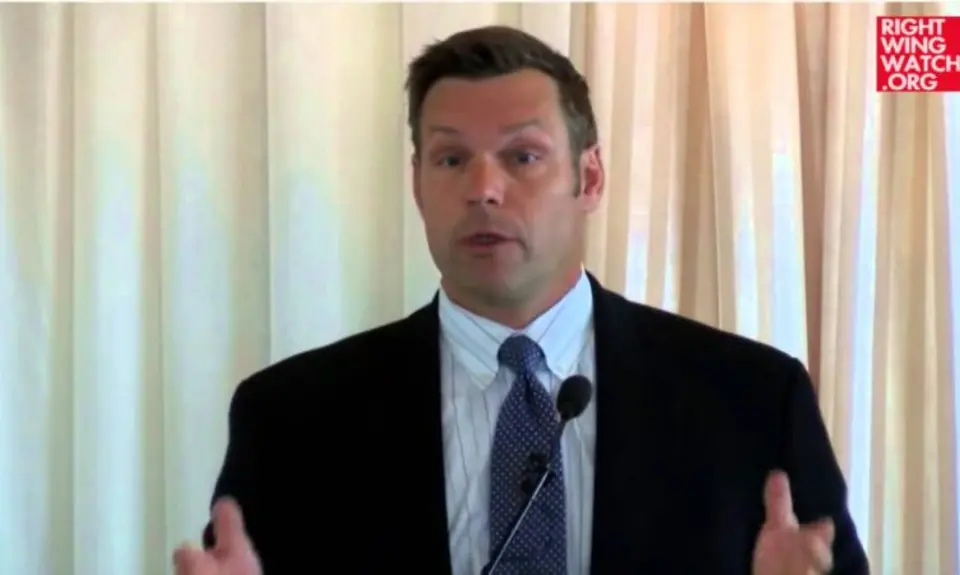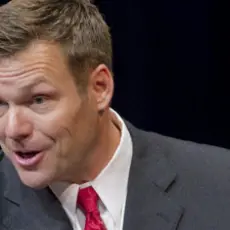ProPublica reports today that Vice President Mike Pence’s office has confirmed that the “election integrity” commission he is running with Kansas Secretary of State Kris Kobach is asking states for extensive voter data in order to run it against “a number” of federal databases.
Most states have refused to provide Kobach and the commission with the full data sets that they are asking for. While many are citing privacy concerns, voting rights advocates are also concerned that the commission will use this data to set up a large-scale version of Kobach’s “Crosscheck” program, which is notorious for sloppy matching that produces inflated numbers of potential double-votes, to the delight of right-wing media. Pence’s admission all but confirms that this is what the commission is indeed trying to do.
ProPublica reports:
While Lotter would not say specifically which databases the rolls would be run against, The Washington Times reported last week the commission may seek to check the names against the federal government’s database of non-citizens. A 2012 attempt by Florida to do that resulted in many legitimate voters being falsely flagged because they had the same names as people in the federal database. Gov. Rick Scott scrapped the effort and eventually apologized.
Comparing names nationwide could result in far more false positives.
“How many Manuel Rodríguezes born in 1945 who are citizens are going to be on an immigration list? There are likely to be several,” said Charles Stewart, a professor at MIT and expert in election administration. “How will you know if he’s the immigrant, or he is one of the several people with that name who are citizens and legally registered?”
Kobach runs a matching program that appears to have its own high rate of errors. A recent study by political scientists at Stanford University found that Kobach’s Interstate Voter Registration Crosscheck Program had 200 false positives for every actual double registration. The Kansas secretary of state’s office did not immediately return a call for comment on the program.
It’s important to note as well that activists promoting the myth of widespread fraud often conflate errors in voter registration rolls with actual voter fraud, which is deeply dishonest. Trump did this himself when he announced that he would be launching a “major investigation into VOTER FRAUD,” saying that his administration would look for “those registered to vote in two states, those who are illegal and… even, those registered to vote who are dead.”
As People For the American Way’s Jen Herrick wrote earlier this year, “A 2012 research report commissioned by the Pew Center on the States uncovered 24 million invalid or inaccurate voter registrations, including deceased voters and people registered in more than one state. There’s no question, as Pew noted, that our outdated system is desperately in need of modernization, but as Pew and countless others have pointed out, dead voters and duplicate registrations are not in and of themselves evidence of fraud. Having invalid or inaccurate voter registrations does not mean that ineligible voters are in fact casting votes.”
Kobach’s fellow commissioners on what Trump calls his “very distinguished VOTER FRAUD PANEL” include two of the other most prominent advocates of voter suppression policies in the country, Heritage Foundation’s Hans von Spakovsky and former Ohio Secretary of State Ken Blackwell. Kobach has used his role as the secretary of state of Kansas to make his state a guinea pig in restrictive voter ID requirements, with disastrous results. Blackwell, now a fellow at the Family Research Council, gained notoriety as Ohio’s secretary of state in 2004, when he was criticized for decisions to restrict voting rights. Von Spakovsky is one of the earlier and strongest proponents of the idea that widespread voter fraud by Democrats is swaying elections and necessitates harsher voting restrictions.







